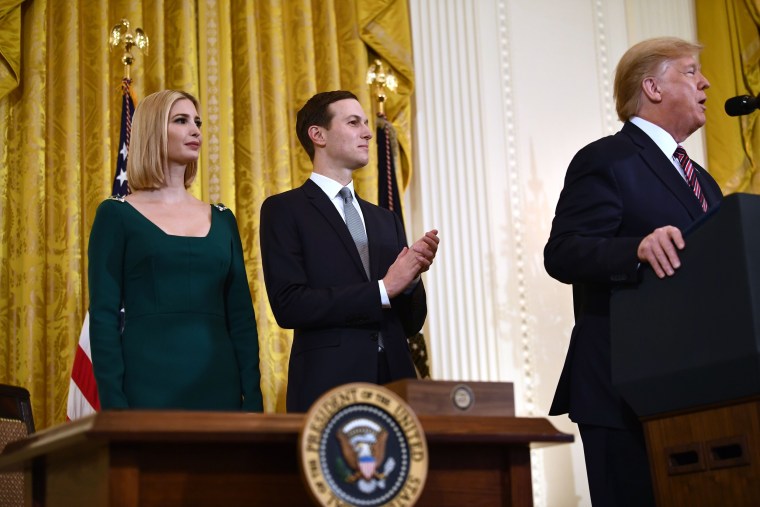In the immediate aftermath of Donald Trump’s 2020 defeat, Jared Kushner seemed to have little interest in sticking around the White House. In fact, the then-presidential son-in-law took on a peripatetic schedule, making multiple trips to the Middle East, and meeting with officials whom he would soon hit up for investments in his new private-sector venture.
This is proving to be controversial for a variety of reasons, but adjacent to the story is a lingering question: Why didn’t Kushner, a key member of Trump’s inner circle throughout his term, remain in Washington, D.C., and assist with his father-in-law’s plot to claim illegitimate power?
The answer is, Kushner simply didn’t believe the Big Lie. The New York Times’ Peter Baker reported:
No matter how vociferously Mr. Trump claimed otherwise, neither Mr. Kushner nor Ivanka Trump believed then or later that the election had been stolen, according to people close to them. While the president spent the hours and days after the polls closed complaining about imagined fraud in battleground states and plotting a strategy to hold on to power, his daughter and son-in-law were already washing their hands of the Trump presidency.
Kushner also reportedly concluded that the then-president “would not listen even to family members urging him to accept the results.”
This is part of Baker’s upcoming book, “The Divider: Trump in the White House, 2017-2021,” which the writer co-authored with The New Yorker’s Susan Glasser. Yesterday’s report added:
One of the most striking realizations that emerged from the book research was how many people around Mr. Trump did not believe the election had been stolen but kept quiet or checked out, including White House officials and campaign aides. Hope Hicks, long one of his closest advisers, told him it was time to move on. “Well, Hope doesn’t believe in me,” Mr. Trump responded bitterly. “No, I don’t,” she replied. “Nobody’s convinced me otherwise.” She disappeared in the final weeks of the administration.
The report went on to note that even Kellyanne Conway told Trump to accept his defeat.
On the surface, it’s of interest that the then-president failed to persuade much of his inner circle to believe his obviously ridiculous lies about the election results. But just below the surface, there’s another dimension to this.
As we discussed in March, the Jan. 6 committee believes Trump might have committed a variety of crimes related to obstructing official proceedings, but in a court filing, the bipartisan select panel also argued that the committee “has a good-faith basis for concluding” that the Republican and his team “engaged in a criminal conspiracy to defraud the United States.”
Legal experts can speak to this with more authority than I can, but based on everything I’ve learned from watching former U.S. Attorney Barbara McQuade during her MSNBC appearances, the key to proving conspiracy to defraud is showing that Trump knew he lost, but launched his scheme to overturn the election anyway.
And that’s where the opinions of Kushner, Ivanka Trump, Hicks, and Conway become more relevant.
The more Trump can prove that he genuinely believed his own nonsense, and his relationship with reality was truly fractured, the harder it will be to conclude that he conspired to defraud the country. But if members of the Republican’s own inner circle acknowledged the former president’s defeat, and told him that he lost fair and square, the defense starts to crumble.
At that point, Trump was aware of the truth — because he was told the truth by people he trusted, including members of his own family — but he hatched a fraudulent and undemocratic plot anyway.
To be sure, there are some details in need of clarification. Did Kushner, Ivanka Trump, and others explicitly tell the then-president he lost? To what extent did they make this clear? How many such conversations were there? Or was this a situation in which those in touch with reality simply assumed that Trump would ignore them, leading these insiders to voluntarily cede their ground, and creating a vacuum filled with cranks and charlatans?
Many of these key personalities spoke to the Jan. 6 committee. I can’t wait to learn what they said.

